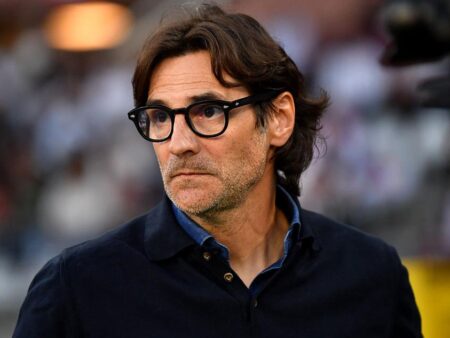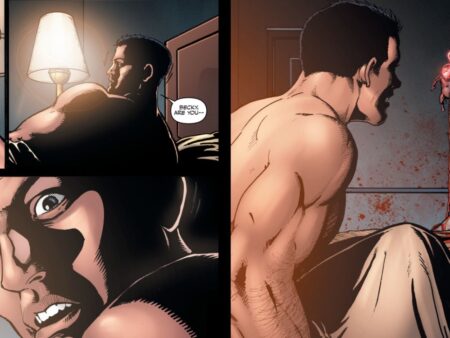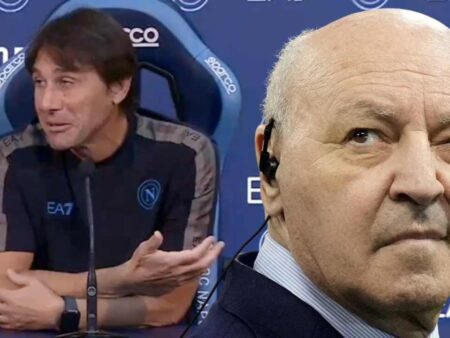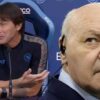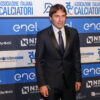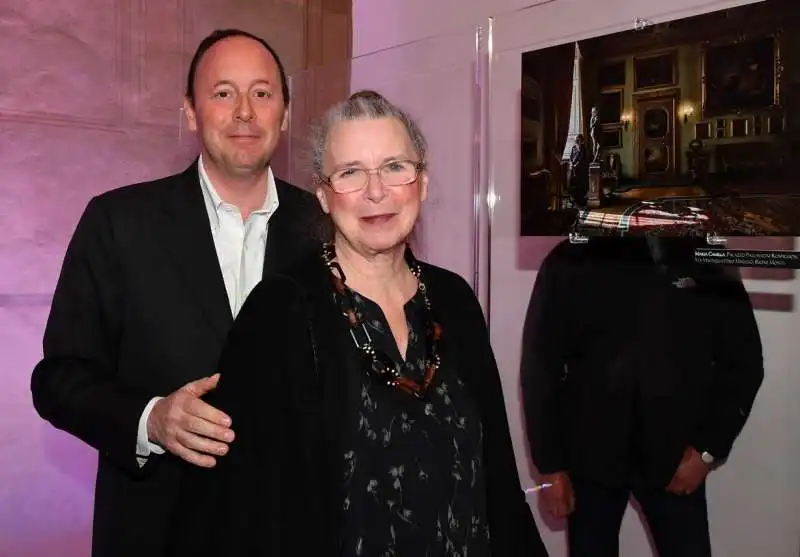
The veteran Tuscan agent has penned a memoir reflecting on his long career: “I started working for three months free in Branchini`s office. In the market, inconsistency is the best way to survive.”

In days gone by, going to the stadium was an early affair. Children remember a hand – one that seemed enormous: their father’s. Reassured by that hand, they waited for the gates to open, and with that providential grip, they navigated the surging crowd to claim their spot inside, beyond the ellipse that felt like the orbit of the entire significant world. That hand remained as, drop by drop, and then in a flood, the stadium filled. Father and son became part of a communal spirit so strong, acute, and indivisible. Football is something more deeply rooted in the imagination than mere tenacious passion; it’s a baptism. It awaits you like a surname or a home, growing with the nourishment of fantasy and dreams. As the poet wrote: “One is a fan of their team because one is a fan of their life, of themselves, of what they have been, of what they hope to continue to be.” Thus, the dream, that hand, the fandom, and an unavoidable baptism are the clear and visible threads (no tricks) of Carlo Pallavicino’s book. I must mention that Carlo is a friend of mine, as it’s honest and crucial information. Turning the pages of a friend’s book, one seeks confirmation of that feeling, to understand something elusive and fleeting, to see the pleasure of reading gradually overcome the duty of doing so.
It happened swiftly. All it took was a `Luisona` (the pasta from Benni`s Bar Sport, which gathered, captivated, and brought order to the chaotic lives of its regulars). Or perhaps a madeleine, the small biscuit of a more profound and infinite search. For Carlo, it was the Totocalcio scoreboard at the Sportsmen`s Kiosk. A romantic yet severe tally, unfolding for an hour and a half, ultimately declarative. Results and standings: all there, a truth etched in stone for an entire week. Young Carlo acquired an identical one (Carlo, in all seasons of life and throughout the book, achieves things that seem forbidden, crosses inaccessible thresholds, and meets and convinces seemingly unapproachable people. Driven by desire, he`s a person who makes things happen—for instance, twenty years ago, he persuaded me to do a nonsensical radio show, discussions without firm ground, which didn`t last long, but we had fun). He hung that scoreboard in the bathroom, a place we might imagine as intimate, but in that house, palace, or factory where Carlo grew up (comfortably, he jokes about it), it was a kind of corridor connecting the private world to the world of work and others, thus drawing a small audience. My apologies, friendship and familiarity got the better of me, and I forgot to introduce him, assuming everyone knows who he is (which is true for many): Carlo Pallavicino is Florentine, of an indefinable age between youth and old age, who has somewhat imposed himself by choosing to become an “ex.” A former journalist, former entrepreneur, former publisher, and, most notably, a former agent and partner of Giovanni Branchini. The book`s title block emphasizes this aspect: “They Called Us Jackals: The Life of a Young Agent in the Football Transfer Market Jungle,” published by Baldini+Castoldi.

Q: So, “Jackal”: what`s the best advice you`ve ever received?
A: “From my mom, after one of her melodramas in front of the professors to save me from an inevitable failure. I asked her how she did it: if you really want something, make your brain work. Everything becomes possible. For the impossible, swallow your modesty and bug people endlessly.”
Q: Crystal clear. You wanted to be a journalist, you were doing it, you started as a minor. Being persistent was your mission.
A: “Among the players, my idols. They asked me to interview Dino Pagliari, the politically engaged player, nicknamed Jesus Christ for his blond curls. I waited for him; he gave me an orange and left. Roberto Galbiati passed by, and I interviewed him instead. That was my first piece for Brivido Sportivo.”
Q: Your first scoop?
A: “Vierchowod’s arrival at Fiorentina. They didn’t fully believe me, so much so that the headline was: ‘As if Vierchowod would also arrive!!!’”
Q: With three exclamation marks?
A: “I tried to object to the editor, but he didn’t remove them.”
Q: Your father died suddenly on your twenty-first birthday, splitting your existence in two, overturning your priorities. Or simply putting them in the right order. Have you ever thought about how things might have turned out differently?
A: “A few days before the car accident, I told him that out of respect for his work and his age (my age today), I would agree to gain some experience in his steel representation office. In reality, he would have loved for me to work in football, even as an agent, because he loved everything I did. When I wrote for Tuttosport and failed university exams, he would ask me: ‘Who did you interview today?’ I lived journalism in an all-consuming way and overdid it, taking risks with little sensitivity, driven by the desire to make a name for myself. Perhaps, yes, his disappearance put everything in order. It made me responsible; I was derailing.”
Q: What’s striking in the book – a coming-of-age story viewed through the lens of a nation’s biography, one that grew up with football as its guiding star – is your perennial restlessness. Exaltations, illusions, and dissatisfactions burning together, always leaving conflicting tastes in every adventure. Does this fire originate from this absence? From not being able to show your success to your father? From the lack of that crucial and established feedback? From the praise you couldn`t hear?
A: “I don’t think so. I believe it stems from the need to break free from a persistent sense of inadequacy and the fear of not succeeding. The book aims to tell precisely this: every day I was convinced it was the definitive, irremediable one, where they would discover me and kick me out of the temple.”
Q: These are the symptoms of a deep love, fears included.
A: “I found reassurance thanks to an unjustified arrogance in observing and judging the qualities of some interlocutors.”
Q: How did you enter the “temple” of football agents?
A: “By reading a short article about a boxing promoter who, after a death in the ring, left boxing to become a football agent. As usual, I started to fantasize and wanted to meet that man. It was Giovanni Branchini; it started like that, with three months of free work in his Milan office. I stayed for thirty years, and after a few weeks, I was with Careca, who needed to change his boot sponsor from Adidas to Mizuno, with a Japanese man who came specifically to Bergamo airport to fit the new shoes to his feet. On Monday, Careca was waiting for me in a Milanese hotel (the day before, Sacchi`s Milan had dominated the most important match). I arrived by car from Florence, I was late, I looked for him from a payphone at an Autogrill, with a crowd gathered around my receiver, drawn by hearing my request to the reception lady: ‘Can you put me through to Careca?’”

Q: How did it end?
A: “I arrived at the hotel; Careca was buttering bread for breakfast, slow gestures, savoring it. The delay – his added to mine – caused him no anxiety. He handed me an envelope with the boots he was wearing: ‘Take them to the Japanese, so they learn to make them identical.’”

Q: What is an agent?
A: “That: it’s the right shoe for the footballer’s foot.”
Q: What is time in this context? How does the clock turn?
A: “It doesn’t exist; it expands and vanishes, it’s never regular. Moggi would give us appointments and show up the next day, towards evening. Lotito would leave you waiting for hours only to appear and overwhelm you with his monologues. You’d try to point it out, ‘President, we’ve been here for hours…’ stammering vague displeasure, hoping to gain an advantage for having wasted a day waiting, thus deserving something. He would reply: ‘What the hell do you want, I was in Parliament working for the country!!!’”
Q: Another three exclamation marks.
A: “Even four. Like the cell phones he kept in front of him, all on, all open. He managed four simultaneous conversations, like a chess player engaged in a simultaneous exhibition. And meanwhile, he was talking to us about contracts. Sometimes he’d ask us to repeat a phrase.”
Q: I think “jackals” is a definition he – of you – might actually like.
A: “When – in court and thanks to lawyer Grassani – we freed Pandev, then Lazio’s best player, who had been forced to train alone without ever seeing the pitch for months, it was a beautiful day.”

Q: When did you become “jackals”?
A: “On December 15, 1995. Jean Marc Bosman was by then a disarmed footballer living on state benefits, but that day he won a battle that began many years earlier when, at the end of his contract, he was prevented from moving from Club Liegi to Dunkerque. The European Court of Justice ruled that a player at the end of their contract could leave without any compensation – which 15 years earlier was the initial step to emancipate players from clubs, who could decide their entire professional life. If compensated releases gave birth to agents, the Bosman ruling brought in the jackals. Suddenly, we were the epicenter of the market; agreements between groups of agents and sporting directors broke down. Every man for himself, money for everyone. And furious presidents considered new contract negotiations with doubled figures as unacceptable blackmail. The power dynamics, moods, and methods had definitively changed. Some agents became mediators in that infinite space of searching for out-of-contract players to place with clubs. This is when the wild traits and grey areas of the profession that still persist were born.”
Q: Let’s go back to dreaming: the most romantic man you’ve met in your work?
A: “Definitely Walter Sabatini. I know it’s a cliché, but then again, being a fellow countryman of Antognoni gives him an advantage. I regretted having few opportunities to work with him. His best quality is establishing intense, exclusive relationships to the point where he makes you feel like the chosen one (but I imagine this also happens with others). Granting that privilege was also the secret of Gianni Agnelli. And also of my grandmother.”

Q: The most cynical?
A: “Aldo Spinelli. But the list is endless and includes a great many of the presidents I’ve known. I imagine that when they meet in the League, they even congratulate each other.”

Q: The most inconsistent?
A: “A very complicated question that sparks a thousand thoughts. Inconsistency has characterized relationships with many people I’ve known, primarily presidents, sporting directors, but also coaches and countless players. In the football transfer market, one coexists with inconsistency because it’s the simplest way to survive its precariousness, perhaps due to the excessive precariousness of this world.”
Q: Even in the book (and I believe in your story) inconsistent impulses battle: ancient tastes and nostalgias, which you court on every page, alongside modern needs, from the internet to any innovation you immediately want to transform into an opportunity.
A: “We are absolutely inconsistent creatures. I’d find it easier to list those who have struck me with their consistency instead.”
Q: Five names.
A: “Donadoni, Pandev, Lucarelli, Pioli, and Lazaroni. Another one: Benny Carbone, apart from 24 hours of his life, perhaps the worst of my career; I still bleed and get agitated at the now distant thought.”

Q: Whoever reads it will know. You said: it’s a book about persistent inadequacy. The day you felt it more than any other?
A: “A few minutes: the walk to Borgonovo’s room at Niguarda, where I would see him again, now overcome by ALS. The last time I had met him, he was a healthy, happy, empathetic, carefree man.”
Q: The day everything seemed right to you?
A: “A few months later, the evening I brought Borgonovo back to the Franchi stadium. I organized that match, that farewell. With Baggio and the champions of Fiorentina and Milan. In the center of the field, Gullit knelt towards Stefano to greet him: he burst into tears, and we with him, releasing emotion and anguish.”
Q: Now? Do you have regrets? Do you miss football?
A: “No, I don’t miss it, although it still has a strong, powerful, and uneven effect on me. For over half a century, life wasn’t divided into years but into seasons, just as Nick Hornby wrote in Fever Pitch. The passion disappeared all at once, and I don’t know why.”
Q: Have you consumed yourself completely, lived all your dreams?
A: “I have one left, if not a dream, a need: I would like to give something back of what I’ve had, to help children who come from distant countries and those who have difficulties, helping them integrate by chasing a ball. I’ve offered my services to a couple of municipalities and as many mayors, so far without success. But I won’t give up.”
Q: For the impossible, bug people, endlessly.
A: “Always.”
Q: Carlo, will Fiorentina ever win their third Scudetto?
A: “Yes, they will win it. I don’t know how or when, but they will win it with the true lily of the seventies on the dark purple jersey and black shorts. And I’ll be able to celebrate with the pitch invasion my father (I was with him in the stands against Varese, May 1969) wouldn’t let me do. Perhaps because I was six years old.”
We’ve returned to that hand, relinquished too soon. This book (which reads like a glass of water when one is thirsty) is the enchanted, naive, transformative (double-dealing is the art of that profession), audacious, and sometimes misguided journey of a football enthusiast within his dreamed world. There are victories and defeats, of course. Illusions and frustrations, toasts and wounds, generosity and cowardice. As Carlo is gifted with self-irony, blunders and arguments abound. Other things from the book: champions like Ronaldo, Rui Costa, and a hundred others, known in the intimacy of private moments, often at the dinner table. Lucarelli not only gave up a billion but lost at least another couple for love (of a city). Moggi no longer greets him, and Baggio took “that” penalty. Carlo quit the profession during a solitary dinner, imagining his players as the oysters on the plate before him in a Parisian brasserie, drinking champagne, in a wave of nobility. No one kicked him out of the temple; he left on his own.
